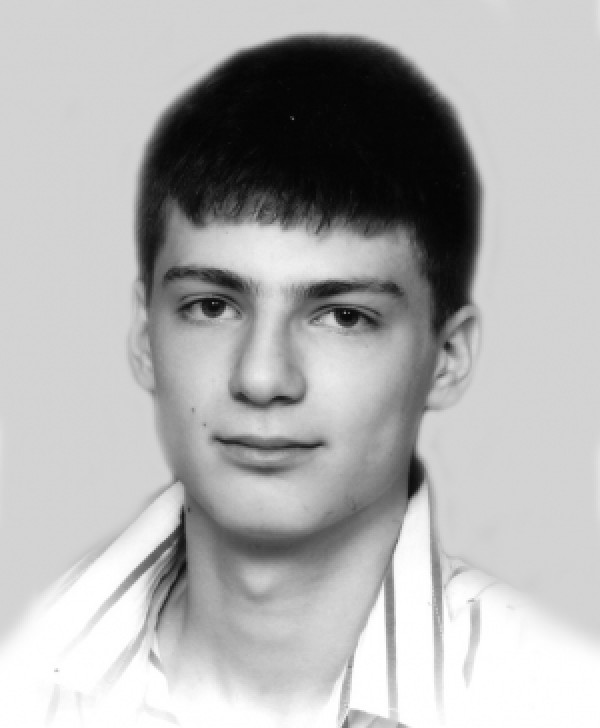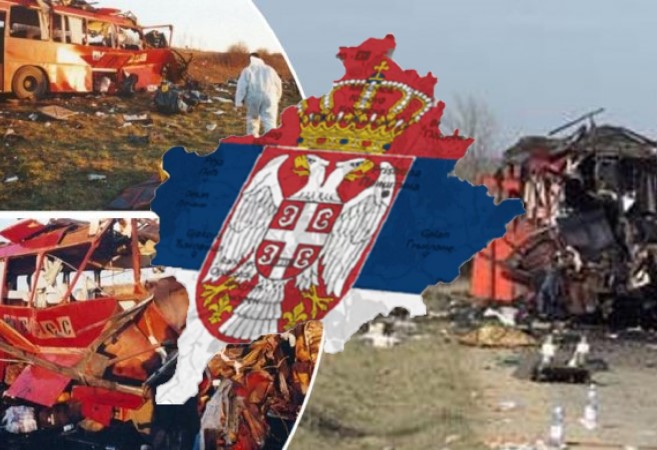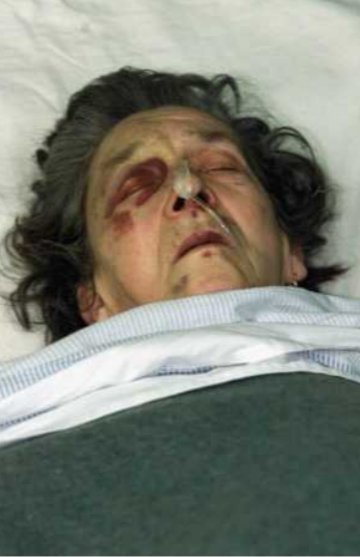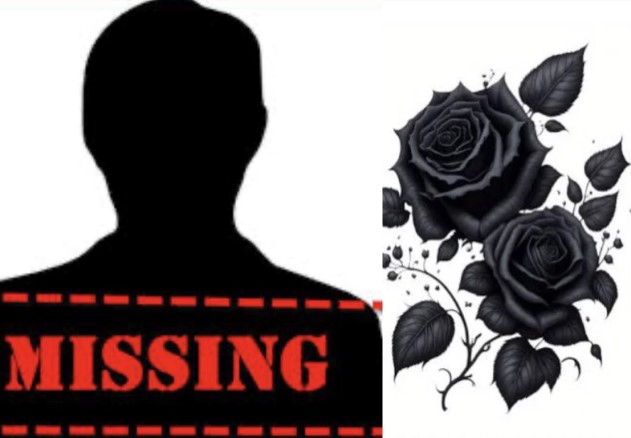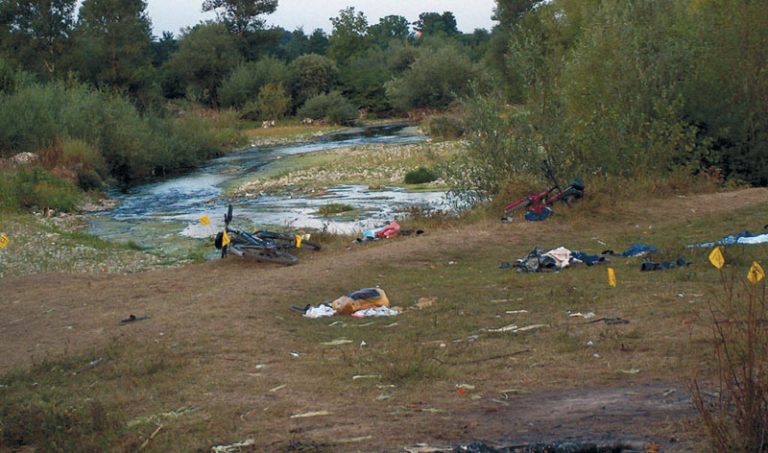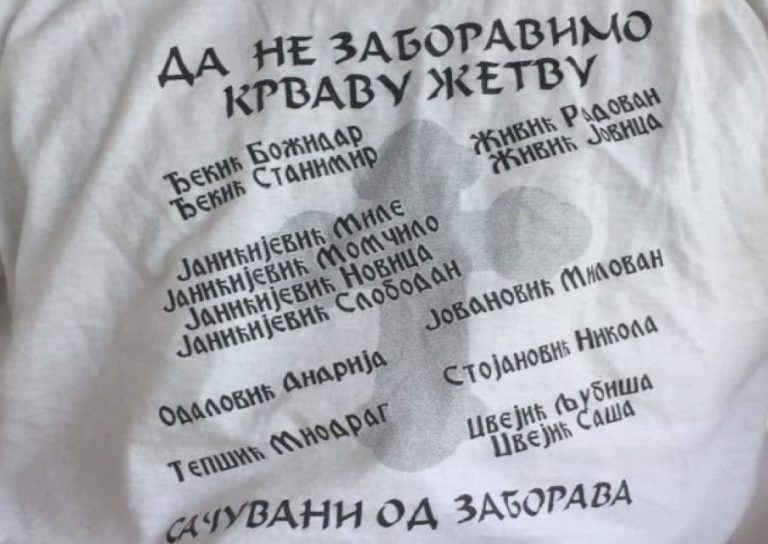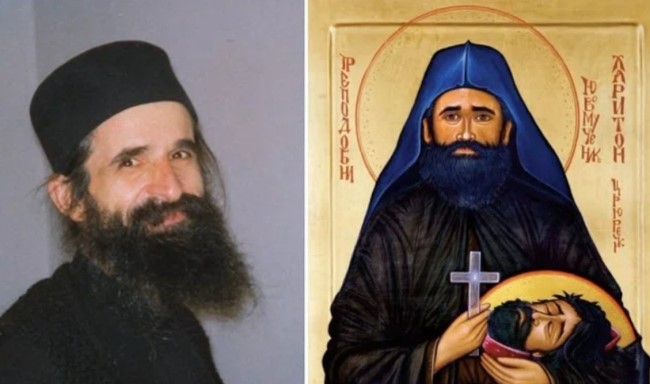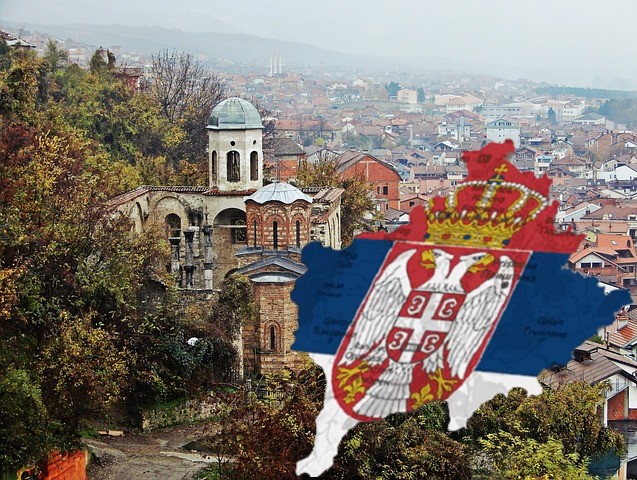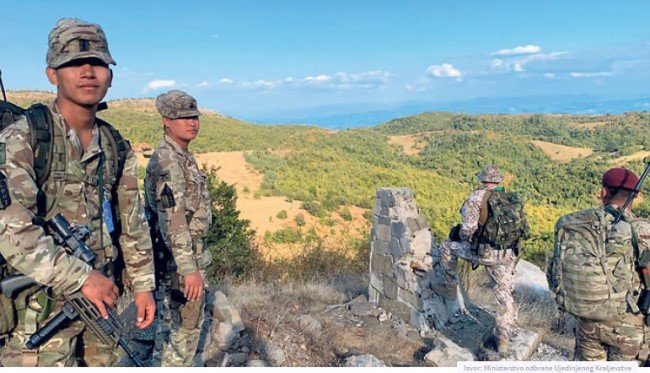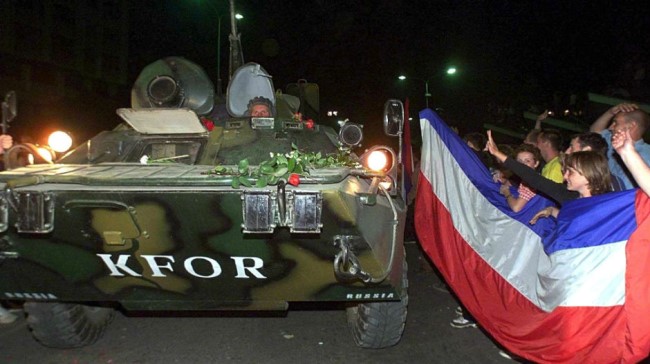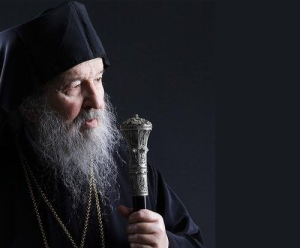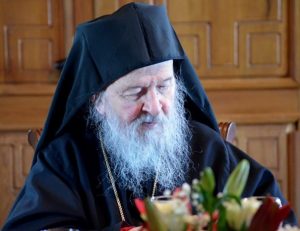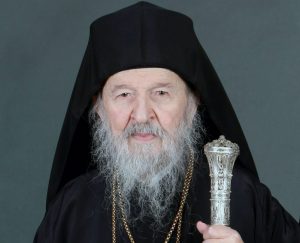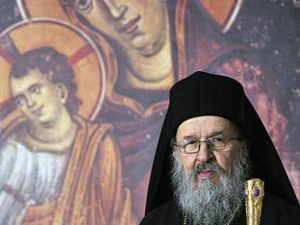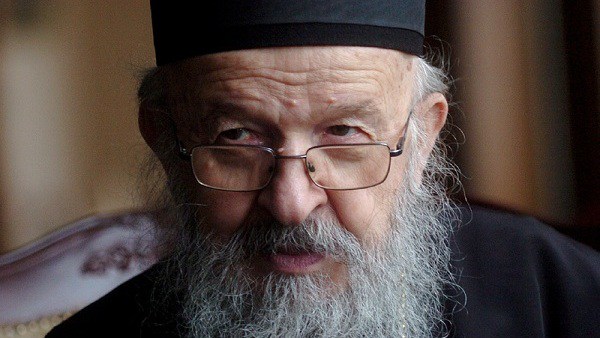
Bishop Artemije: A small return gift - a response to the attacks of Bishop Atanasije
"Preach the word, strive for a good time."
and in a storm, reprimand, threaten, beg
with every bearing and learning"
(II Tim. 4, 2).
This divinely inspired and divinely wise advice of the holy apostle Paul, addressed to his disciple Timothy, was understood by bishop Dr. Atanasije (Jevtić) in his own way, as well as many other places from the divinely inspired books of the Holy Scriptures and the works of the holy Fathers of the Holy Orthodox Church. He really does not miss an opportunity to attack, insult, slander, or defame... anyone who does not unquestioningly adopt his way of thinking, acting, and living in the Church of the Living God, who does not agree to obey him in everything, to be his "image and likeness", especially if he is also his "brother".
Hasn't that been evident "again and again and again" in the last few years, and especially in the last few months? That man (although retired eleven years ago) received (from whom?) incredible strength and zeal to, like Don Quixote, fight with windmills that he builds, destroys and rebuilds. Although he succeeded - with the help of some other brothers, a rigged process, an unorganized court - to condemn Us and deprive us of the Eparchy of Raška-Prizren entrusted to us, to build a demon-like monster out of Father Simeon (Vilovski) with his logos, to put Predrag Subotički, who is languishing there, in prison six months, that was not enough for him. Expecting that the issue of the extradition of Fr. Simeon was tried at the highest state court of Greece, the Areopagus, in mid-June, Bishop Atanasije toured the entire Mount Athos and half of Greece, providing everyone with abundant "evidence" about the crimes and manipulations of Simeon Vilovski. Then he became famous with his interview on Romfea, which was also broadcast on the (now) official website of the Diocese of Raška-Prizren. Since he received an adequate answer from Fr. Simeon, also on Romphea, we will not deal with it here, although it would not be without significance for our church public if that correspondence appeared in an integral form.
It was zeal shown "in good time", but it was not enough. The Supreme Court of Greece, Areopagus, at its session on July 6, 2010, decided that Fr. Simeon was not handed over to the judicial authorities of Serbia. Why? It will be seen from their official announcement that will appear these days. What is already known, it was decided that way because the judicial authorities of Serbia, along with the request for the extradition of Fr. Simeon was not provided with a single piece of evidence of the guilt attributed to him. Why did Belgrade not submit that evidence? Apparently, because he didn't have any. Such a decision of the Greek court sheds new light on the entire case of the Diocese of Raška-Prizren.
However, Bishop Atanasije denies this and finds "real" reasons for the release of Father Simeon. He literally says: "He (Father Simeon) was acquitted thanks to Bishop Artemija's many times false testimony." That's what he said and he stayed alive, but he didn't prove it with anything, as well as many other slanders, lies, and insinuations that he uttered and wrote on Our account. And what this "brother" is capable of thinking up, creating, and combining, it is difficult to enumerate in one short review. However, whoever has the opportunity should find, again on the official website of the Diocese of Raška-Prizren, his latest published theological treatise: "Wrong (=non-Orthodox) understanding of the Church and salvation in the theory and practice of Bishop Artemije and groups of monks, his disciples", so many things will become clear to him.
We have neither the desire nor the ability to analyze in detail everything that was attached and sewn to us there, "again and many times", without any evidence, except for imaginary and invented constructions in the head of Bishop Atanasije. For example, he writes: "Artemije claims that he is no longer a bishop to his monks, but that he is still their spiritual father, a 'spiritual father'." He develops this thesis extensively - at the same time quite brazenly - in his public statements, open letters, and similar texts", without citing a single example from the "abundance of texts" that would support his thesis. Something similar to the Areopagus.
About the qualifications and blasphemy of those poor monks and nuns who left their monasteries, where they spent twenty or more years each, not because of honey cakes, but because of the enormous amount of "love" poured out on them by the first and second administrators of the Diocese of Raško - Prizrenska, what can I say? Who doesn't see that? Who doesn't feel that? Of course, in Bishop Atanasije's text, the main and only culprit for all those "disorders" in the Serbian Orthodox Church, including the initiation of monks, is none other than Bishop Artemije. It is also to blame that "Artemije alone, personally and exclusively, monasticized" his monks. That, I guess, is my biggest sin. In order to "prove" this, he cites the example of the apostle Paul, who, as Atanasije (here) correctly concludes, "salvation boils down to Christ and that is why he does not preach himself but Him, the Crucified and Risen One, He Who is Love and Who creates with spiritual love, constitutes His Church as a Community of Love". With such a description of the work of the holy apostle Paul, he seems to want to point out and "prove" that Artemije, instead of Christ, the Crucified and Risen One, probably preached himself!?
There are 300 such constructions in these fourteen pages of Bishop Atanasije's text. What's more, what doesn't he attribute to me even though these are notorious lies: "Bishop Artemije divided his flock... and also his monasticism", of course again (as many times) without any evidence. He even maliciously expects "to see what discord and division Artemije will create in the Srem Diocese" and prophetically adds: "Because he will not rest there." And as evidence he cites rumors: "Because it was already heard that his followers bought a house near the Šišatovac monastery.", wondering anxiously: "With what money"?
There was occasional talk about the comparison of Artemije and the people of Artemije, their groups, and groupings, with the Greek old calendarists, the closeness of Artemije to the old calendarist Cyprian, "with whom Artemije maintained a kind of relationship and this was known in Greece, and we also knew it in Serbia". and in the past period. Since only Artemije knew nothing about these "peculiar relations", it would have been good if Atanasije had supported this with at least one piece of evidence, so that this nebula would be at least somewhat convincing.
Claiming, among other things, that Artemije, who does not have his own diocese, cannot have his "spiritual children", especially in other bishoprics, he is keenly interested in "what his 'spiritual children' confess to Artemije when they continue to rebel against church order and order" ..." Since he cannot know that, nor can I, as a clergyman, reveal it to him, he concludes that "their recent Open Letter to the administrator of the Eparchy of Raška-Prizren, Metropolitan Amfilohije, best confirms the fruits of Artemije's 'priesthood' over such monks", because "they don't even have the letter m from the monastic face and vows".
In his curiosity, Atanasije still asks: "What do the groups and groups of Artemije represent?..." and confidently concludes: "Except for a sign that Artemije is already creating an ecclesiological schism." Because, he (Artemije), "creates tramples and denies both the holy canons and the Holy Tradition and creates, without love and communion, new, non-Orthodox, non-ecclesiastical, non-canonical, non-liturgical theories about some imaginary, virtual ecclesiology, and therefore also about to some new sotiriology..." Since even here he does not cite any evidence or quotes that confirm the existence of this "theory" of Ours, it remains only to conclude that it all exists only in the head of the author, who makes constructions, truly "imaginary", against which then he fights fervently, establishing himself as the new Don Quixote.
And so on, and so on. Sin to sin, iniquity to iniquity, and Bishop Atanasije painted the spiritual and moral image of Bishop Artemije, who, despite everything that was done to him, still dares to "consider that he has been wronged", so he wonders (even though he is convinced that he has not), even if it is so, "why would he rather not bear injustice, for Christ's sake, than divide the people of God and tear the unsewn Robe of Christ"? Is there any comment needed here?
Finally, I am grateful to Bishop Atanasije for brotherly reminding me of the wonderful texts of Saints Ignatius of God, Irenaeus of Lyons, and, especially, Saint John Chrysostom, who advises his fellow bishops: "... But do not sign my condemnation, because I know nothing about myself that is worthy of overthrow". I, on the other hand, being aware of my sins and flaws, do not dare to compare myself with those saints of God, although I could also send the message of Saint Chrysostom to my brother bishops.
What pleases me is the prayer at the end of Bishop Atanasije's text, if it is sincere, where he includes his writings among his sins, for which he begs mercy from God.
+ARTEMIJE,
Retired Bishop of Raška-Prizren
and Kosovo-Metohija

